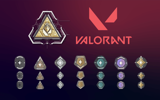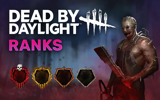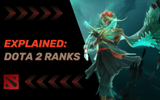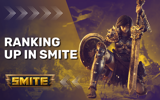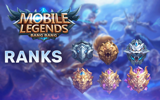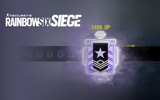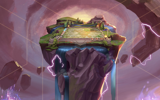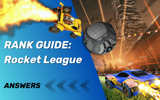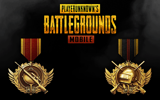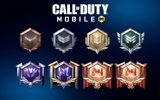Overwatch 2 Rank Guide

So, you're eager to climb the competitive ladder in Overwatch 2? Let’s first understand how ranking works in this high-paced shooter game. Essentially, it's a measure of your skill level compared to other players in the game. A ranking mechanism is in place to make matches exciting and balanced. It's a lot more thrilling to play against adversaries of the same skill rather than completely mismatched opponents, isn't it? This mechanism exists to maintain that balance.
The first thing you should know is that Overwatch 2 uses a system known as Skill Rating (SR) to determine your rank. Each player's SR is a numerical value that fluctuates based on wins, losses, and personal game performance. The more SR you earn, the higher you ascend in ranks.
After you've played a number of placement matches at the start of each competitive season, you're assigned a number from 1 to 5000; this is your SR. This isn't a random number, it’s a meticulously calculated score that measures your effectiveness in the battlefield!
Ready for more? Let's dive deeper into the intricacies of Skill Rating in the next section.
Skill Rating in Overwatch 2
To understand Overwatch 2 ranks, you'll first need to grasp the concept of Skill Rating (SR). Your SR indicates how good you are in Overwatch and serves as a foundation for the competitive matchmaking system. A numerical system, your SR rating is your virtual badge of honor within Overwatch, reflective of your individual ability and game knowledge. The more SR you have, the higher your rank will be. After every match, your SR either increases or decreases based on various parameters.
In Overwatch 2, SR is determined mostly by the outcome of your games, your individual performance, and the skill level of your opponents. Win, and you'll likely see your SR increase. On the other hand, a losing streak will result in a decrease in your SR. Individual performance, although slightly less influential than match outcomes, is still critical. The game's algorithms evaluate how well you played your role and reward or penalize you accordingly.
Lastly, the skill gap between you and your opponents also factors into your SR adjustment. If you're paired against higher-ranked opponents and you manage to hold your own, you'll rake in more SR points. Conversely, losing to a team of lower-ranked players means a steeper SR drop. This might seem a little harsh, but it helps maintain balance in the game and ensures that each match is a fair challenge.
Each player SR can vary from a lowly 1 to a whopping 5000. The average player usually finds themselves somewhere in mid-range. Generally, games become more demanding and the opponents more skillful as you climb the ladder. The SR range essentially sets the stage for Overwatch 2 ranks. Let's break down those ranks in the next section.
All Overwatch 2 Ranks
Let's delve into the juicy bits - the ranks. In Overwatch 2, just like in the original game, there's an extensive ladder system with six principal ranks. Each of these ranks represents a different skill level in competitive play, offering a diverse gauge of player talent.

Read below to learn the distinctive features and types of players for each rank in the game.
1. Bronze (1-1499 skill rating)
Bronze rank is the entry point into competitive play. Players in this level might still be acquainting themselves with the game mechanics, or need to improve their game tactics. Don't be discouraged if you're ranking in Bronze, everyone starts somewhere!
2. Silver (1500-1999 skill rating)
Silver is the next level up. Players in Silver have usually mastered the basics and are starting to work on more advanced strategies. Silver players often exhibit a commitment to teamwork but still have ways to go in terms of gameplay refinement.
3. Gold (2000-2499 skill rating)
Gold-level players represent the median skill level in Overwatch 2. You'll find a significant chunk of the competitive community dwelling here, showcasing a solid understanding of game mechanics and character roles. Accuracy, map awareness, and team coordination tend to be noticeably better here.
4. Platinum (2500-2999 skill rating)
Platinum is where things start to get pretty serious. Players in this rank are often highly competitive and display exceptional skills, strategic thinking, and intensive game sense. Their teamwork is generally well-coordinated, and individual performances are typically superb.
5. Diamond (3000-3499 skill rating)
The Diamond rank is for players who've gone above and beyond average gameplay. Not only do they have a substantial understanding of game mechanics and roles, but they also adapt quickly and efficiently to irregular play styles, showcasing their excellent decision-making and tactical capabilities.
6. Master and Grandmaster (3500+skill rating)
Master and Grandmaster are the cream of the crop. If you encounter players in this rank, you're witnessing some of the best Overwatch 2 competitors worldwide. Players at this level are often professional or semi-professional gamers who showcase top-notch abilities in reaction speed, tactical awareness, and synergy with their team.
It's important to note that each rank has divisions based on hundreds of points, allowing for further precision in ranking you according to your skill level.
7. Top 500
Being part of this elite group means breaking into the top 500 performers for your region and platform. Players in the Top 500 demonstrate exceptional skill, planning, and teamwork, with many striving to go professional.
This is not a rank for the faint-hearted and it demands constant practice and determination. You'll be playing against others performing at their peak, so it's important that you are too.
All Overwatch 2 Rank Rewards
Who doesn’t love some sweet rewards? Besides playing for the thrill of the game, one of the fundamental motivators for every Overwatch 2 competitive player is the rank rewards system. Now, we're catching a ride on the victory train to take a look at the tempting treats and exclusive bragging rights that ranking up in Overwatch 2 has to offer.
Competitive Points
Competitive Points are awarded at the end of each match, with the amount being directly in correlation with your performance in each game. Wins will net you more points than losses or draws. Even if you messed up in the game, you won’t walk away empty-handed.
However, do understand that these points aren't meant for a spending spree. Accumulating CP is a lengthy process, a testament of your dedication to the competitive scene. But beware! Since the cap for CP is set at 6000, dangling just slightly above acquiring two golden weapons, it's crucial to keep an eye on your CP bank. Hit the cap and you could miss out on points, so spend them wisely!
Golden Weapon Skins
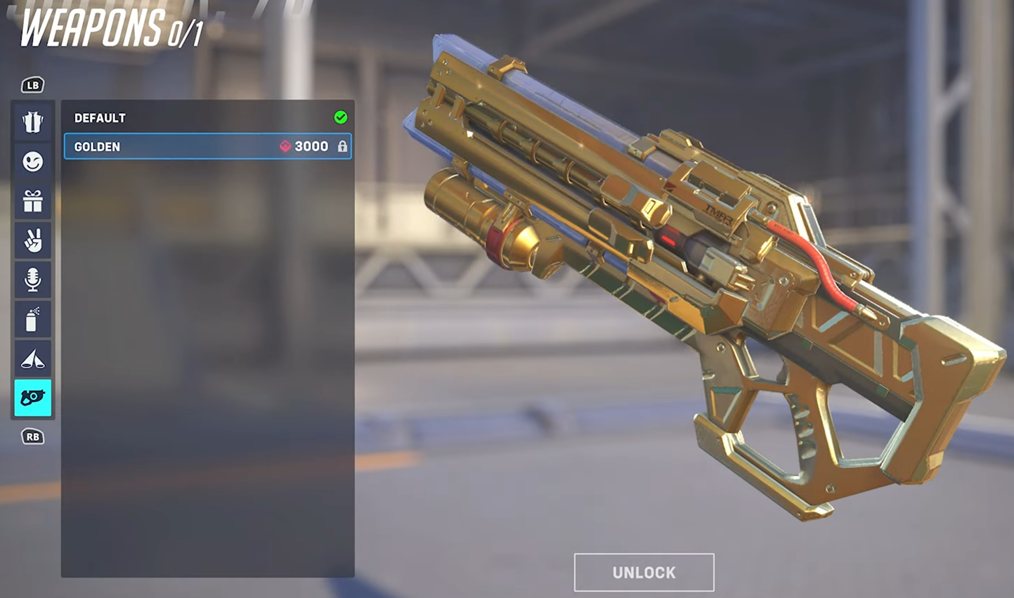
As you rise through the ranks in Overwatch 2, one of the most coveted rewards you can attain is the Golden Weapon Skins. Each character in Overwatch 2 has a weapon, and the weapon skins allow you to give a personalized touch to these tools of destruction. The Golden Weapon Skins, as their name suggests, are a special type of skin that turns your character's weapon into a shiny gold piece, making them stand out in the battlefield. Not only this does give your character a unique appearance, but it's also a bragging right and an indicator of a skilled player.
Now, on to the important question - How can these Golden Weapon Skins be earned? Well, the answer is - Competitive Points. Once you accumulate enough CPs (specifically 3000 CPs), you can use them to purchase a Golden Weapon Skin for any hero of your choice.
Note that competitive points are not exclusive to golden weapons. There are various things you can purchase with them, like for instance, other weapon skins. However, remember that Golden Weapon Skins, unlike some other skins, can only be earned through CPs earned in Competitive Play, serving as a testament to a player's skill.
End-of-Season Rewards
First and foremost, the end-of-season rewards. Each competitive season, Overwatch 2 rewards players based on the highest skill rating achieved during that season. The higher your rank, the more Competitive Points (CP) you accumulate.
- Bronze: 65 CP
- Silver: 125 CP
- Gold: 250 CP
- Platinum: 500 CP
- Diamond: 750 CP
- Master: 1200 CP
- Grandmaster: 1750 CP
Competitive Points are the key to purchasing golden weapon skins, bringing not only a flashy visual upgrade to your weapon but also a clear sign of your competitive prowess.
Top 500 Rewards
Speaking of bragging, if you manage to bust into the illustrious Top 500 players during any competitive season, you'll find yourself bestowed with a cosmetic player icon and an animated spray. Not many can claim these highly coveted items, making them all the more desirable.
Role Queue Rewards
Let's not forget the Role Queue system. By playing ranked matches in a specific role, be it damage, tank, or support, you can earn additional rewards. This range from extra loot boxes for playing less popular roles to help balance out the team dynamic, to even more Competitive Points.
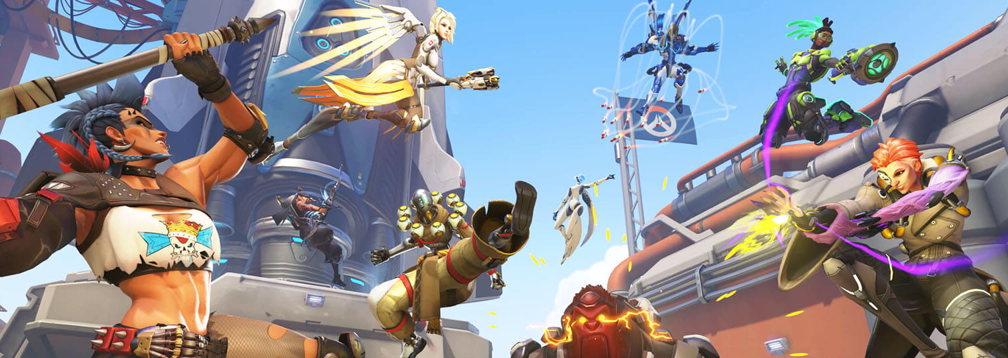
How to Rank Up Faster in Overwatch 2
So you've fallen in love with the world of Overwatch 2 and you're eager to climb the ranks. You're in the right place, my friend. Winning isn’t just about who has the fastest reflexes or the most hours logged. Proper strategy, teamwork, and the best use of each hero’s abilities are key. Let’s take a look at some tried-and-true strategies to help you climb the ladder faster.
Understanding Your Role
First things first: know your job. Overwatch 2 is a team-based game, with each member fulfilling a unique role (Damage, Tank or Support). Your task is to understand your hero's role and the responsibilities that come with it. Stick to what you're good at and perfect it. Mastering the mechanics and timing of your chosen hero can mean the difference between crawling or sprinting up the ranks.
Communication is Key
An uncoordinated team is catnip for the enemy. Communication is the bedrock of any successful Overwatch 2 team. Use your team chat efficiently. Calmly and clearly call out enemy positions, coordinate ultimates and focus-fire high priority targets. Remember, keep it constructive and minimize negativity. No one performs better under a barrage of criticism.
Use The Meta, but Don’t Be Bound by It
Often changes in the meta, the game's most effective tactics, stem from balance updates by the developers. Keep an eye on these changes and how they might shift the strength of certain heroes or tactics. If your go-to hero receives a significant nerf or buff, adjust accordingly. However, don't be a slave to the meta. If you can pull off a 'non-meta' hero exceptionally well, it can catch the enemy team off-guard.
Study and Practice
Practice does make perfect. Invest time in training modes or custom games to get a handle on your aim, abilities, and movement. Analyze replays of your own matches to identify where you can improve. Have a look at professional players or content creators who provide commentated gameplay, guides and tips. You can learn a lot from their playstyle, positioning and decision-making.
Take Breaks
Finally, remember that it’s just a game and it’s meant to be fun. Staring at the screen for extended periods can lead to fatigue, affecting your performance. Make sure to take regular breaks, stretch a bit, keep hydrated, and keep a positive mental attitude. It may sound cliché, but the best way to win more games and rank up faster is to enjoy the process itself.
With careful strategy, staying ahead of game meta, effective communication, and dedication to practice, you can soar up the Overwatch 2 ranks. The climb might not be easy, but the view from the top is well worth it.
As we wrap it up, let's not forget that climbing the Overwatch 2 competitive ranking ladder isn't overnight work. It's a balance of commitment, strategic insight, and continual skill refinement.




